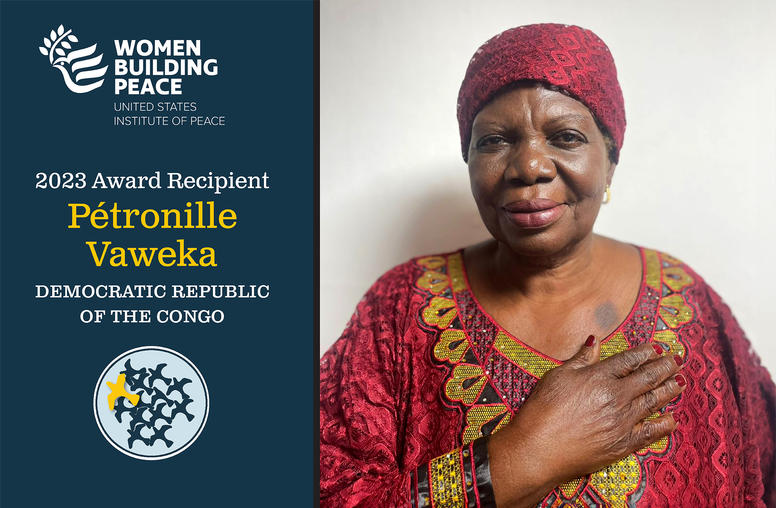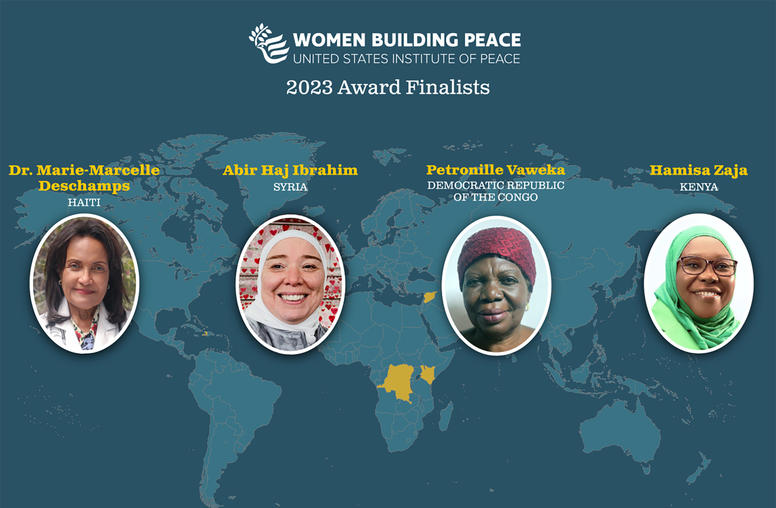Effective U.S.-Pakistan Negotiations Crucial to South Asian Peace
As the United States begins planning a withdrawal in Afghanistan, Pakistan’s support is pivotal for U.S. security interests. Thus far, the goals of the two countries have remained divergent and it will require skillful and persistent negotiations to ensure Pakistan’s support. How Pakistan Negotiates with the United States: Riding the Roller Coaster, a new volume published by the United States Institute of Peace, analyzes the themes, techniques, and styles that have characterized Pakistani negotiations with American civilian and military officials since Pakistan’s independence and offers concrete lessons and advice on how to effectively negotiate in the future.
March 22, 2011
For Immediate Release
Contact: Meg Pierannunzi, 202-429-4736
Allison Sturma, 202-429-4725
 (Washington) – As the United States begins planning a withdrawal in Afghanistan, Pakistan’s support is pivotal for U.S. security interests. Thus far, the goals of the two countries have remained divergent and it will require skillful and persistent negotiations to ensure Pakistan’s support. How Pakistan Negotiates with the United States: Riding the Roller Coaster, a new volume published by the United States Institute of Peace, analyzes the themes, techniques, and styles that have characterized Pakistani negotiations with American civilian and military officials since Pakistan’s independence and offers concrete lessons and advice on how to effectively negotiate in the future.
(Washington) – As the United States begins planning a withdrawal in Afghanistan, Pakistan’s support is pivotal for U.S. security interests. Thus far, the goals of the two countries have remained divergent and it will require skillful and persistent negotiations to ensure Pakistan’s support. How Pakistan Negotiates with the United States: Riding the Roller Coaster, a new volume published by the United States Institute of Peace, analyzes the themes, techniques, and styles that have characterized Pakistani negotiations with American civilian and military officials since Pakistan’s independence and offers concrete lessons and advice on how to effectively negotiate in the future.
Drawing from their vast diplomatic experience, authors Teresita and Howard Schaffer examine how Pakistan’s ideological core, geopolitical position, culture, and governmental and military structures shape negotiations with the United States. As a key U.S. partner in the fight against extremism, ensuring its stability is an essential aspect of America’s strategy to bring peace to the South Asian region. Yet, the critical importance of the U.S. to Pakistan’s security has lent a unique character to how the two countries negotiate with one another.
The authors write, “Success and failure are not simply a function of negotiating technique. Negotiating style still matters. Negotiating style affects the way the countries continue to deal with each other after formal negotiations have concluded. U.S. negotiators cannot expect (and should not try) to counter all the characteristics of Pakistan’s prevailing negotiating style, but understanding them is an essential start.”
The Schaffers address not only the process by which the two governments reach formal agreements, but also the overall conduct of official U.S.-Pakistani dialogue, the informal processes that have shaped their diplomatic relationship, and the periodic involvement of the United States in Pakistani domestic politics.
Over the past sixty years, Pakistani-U.S. relations have been marked by highs of close cooperation and lows of deep bilateral estrangement. Much of the story of U.S.-Pakistan negotiations underscores the remarkable resilience, but also the vulnerability and volatility, of the relationship. Throughout the Cold War and continuing after 9/11, Pakistan’s location has shaped a relationship of mutual interest and asymmetrical goals. The United States views Pakistan as a strategic partner in achieving global security goals; Pakistan looks to the U.S. as a counterweight to India and its neighbors.
Despite some negotiation successes between Pakistan and the United States in past years, significant U.S. aid for disaster relief in response to summer flooding, and substantial American support for Pakistan’s civilian government, the relationship between the two countries continues to be strained as a result of U.S. missteps related to what Pakistan perceives as self-serving U.S. security interests. Efforts to bolster the relationship will require skilled American negotiators who understand Pakistan’s negotiating style and culture—a point this book drives home as it offers insights and advice for not only U.S. officials but also for business, university, and NGO representatives dealing with Pakistan.
###
The United States Institute of Peace (USIP) provides the analysis, training and tools that help to prevent, manage and end violent international conflicts, promote stability and professionalize the field of peacebuilding.


